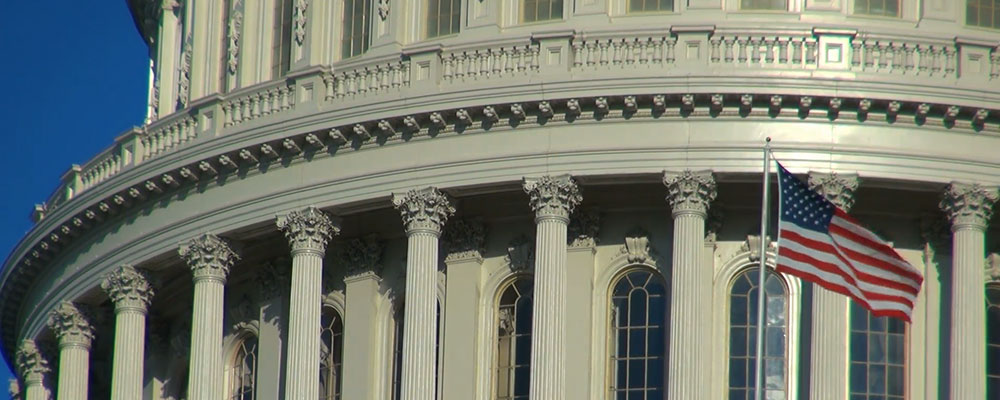National News
NAR Attends White House Opportunity Zone Event; New Rules Out
NAR’s 2019 Commercial Liaison, Bob Turner from Memphis, TN, represented NAR at a White House event on the Qualified Opportunity Zone (“QOZ”) program on Wednesday, April 17. The QOZ program was created in the 2017 Tax Cuts and Jobs Act to revitalize underserved communities by providing tax incentives for certain investments into them, to promote development and create jobs. In connection with the event, the Treasury department released the much-anticipated second round of proposed rules for the program, which provide more specific detail on how investors can participate in the program and receive the full tax benefits it offers.
The keynote speaker of the White House event was the President, who emphasized the administration’s commitment to the success of the program, to drive economic growth through long-term investments in underserved areas, designated as “Opportunity Zones.” Under the program, taxpayers who reinvest capital gains from a previous sale into a fund for investing into a QOZ are eligible to defer paying taxes on those gains, and can potentially reduce their tax liability by 10 – 15% (based on the amount of time they hold the investment). Additionally, if the investment is held for at least ten years, any appreciation on it is tax-free. Housing and Urban Development Secretary Ben Carson and Treasury Secretary Steven Mnuchin also spoke at the event.
This second round of rulemaking builds off previous proposed rules released in October 2018, fleshing out and clarifying many aspects of the program. They include:
- Guidance on how to define the “original use” of a property in a QOZ, including vacant properties;
- How to count inventory of a QOZ business (which may not be physically in the QOZ, or may be sold to customers outside of it) when determining QOZ business property;
- The treatment of leased property within a QOZ for purposes of satisfying the program’s requirements;
- How to meet the requirement that QOZ businesses derive 50% of their gross income from business activity in a QOZ;
- Treatment of a QOZ business that straddles a QOZ; and
- Clarity on and examples of events that cause inclusion of a deferred gain (a triggering event to pay capital gains taxes on reinvested gains) and the flexibility funds have to reinvest interim gains.
NAR will be analyzing the proposed rules and providing updated information on them in the coming days. For more information on this topic, visit the Qualified Opportunity Zones page.
New FHFA Director Sworn In
On Monday, April 15, NAR staff attended the swearing in ceremony of Dr. Mark Calabria to be the next Director of the Federal Housing Finance Agency (FHFA). Dr. Calabria has decades of experience in housing and finance policy, including time spent at NAR. NAR supported Dr. Calabria’s nomination, which most recently included spearheading a coalition letter(link is external) to the full Senate that led to his confirmation on April 4 to a five-year term. At the ceremony, NAR joined a wide array of industry participants in supporting Director Calabria’s new role where he will be responsible for ensuring a reliable, stable, and liquid housing finance system that provides access to affordable mortgage credit for all creditworthy Americans.
State News
April was a busy month for advocacy as Ohio REALTORS® hosted their annual legislative conference. REALTORS® from all corners of the state descended on Ohio’s capital to participate and learn from panels that included topics such as Opportunity Zones and eviction issues.
Meanwhile, Ohio REALTORS® new legislative initiative was introduced. Titled “First-time Homebuyer Savings Act” Senate bill 139 would establish an incentive for individuals to open a savings account dedicated to the purchase of a first home, much like the bills cousin – Ohio 529 Advantage Plan.
Details of the bill include:
CONTRIBUTIONS
- Annual maximum contribution is $5k for single and $10K for married
- Max 15-year cumulative contribution amount is $50k for single and $100k for married
- Contributions plus interest are tax deductible
MANAGEMENT
- Account is self-managed; banks have no liability or responsibility of management
PENALTIES
- Withdrawal penalty is 10%
EXCEPTIONS
- Account Holder death or disability
- Bankruptcy
- Monies transferred from 1 FHBSA to another FHBSA
- Financial Institution fees
Ohio REALTORS® and Dayton REALTORS® will keep you informed of how this legislation progresses.


